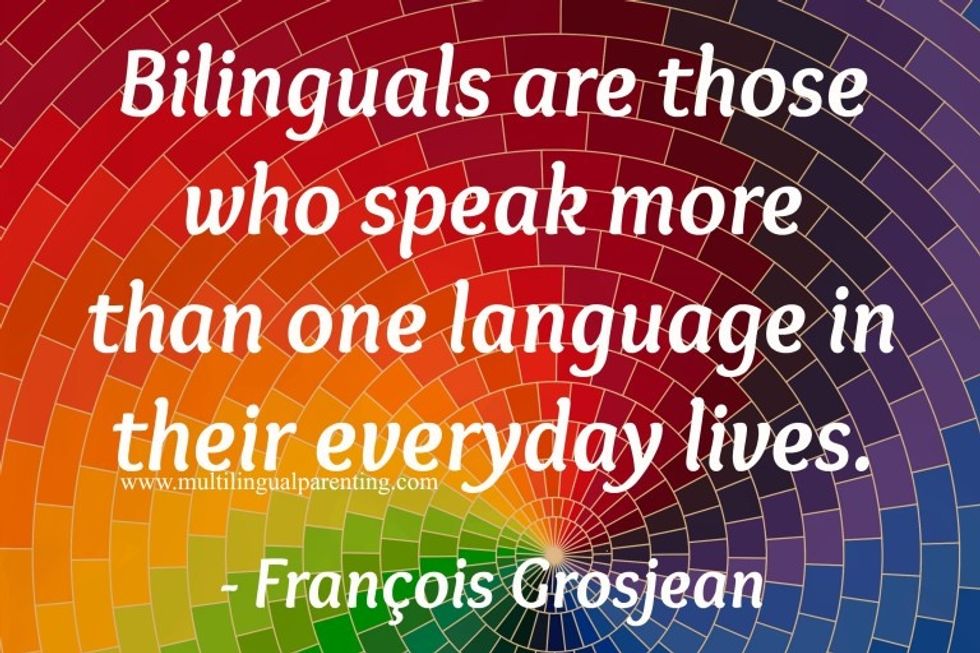"This is America! Speak English!"
From confrontational rants that go viral to movements to implement actual linguistic policy, a lot of my fellow Americans share this sentiment. Here's some reasons why I think English-only is so damaging.
1. Accessibility to services in different languages is an actual public health and safety concern.

In emergency situations, it's important that everyone knows what's going on. When I was studying abroad in Argentina, I came down with a gastrointestinal bug, which triggered vomiting and diarrhea. My host mom drove me to the local doctor. Now, I'm a Spanish major, and I was comfortable enough in my language skills to answer the doctor's questions. The doctor gave me an injection and she told me it would help stop the diarrhea. My host mom told me she had gotten it before, too, so that was good enough for me.
When I messaged my mom later about the situation, she told me I should've asked what was in that shot. I replied I didn't know how I could do that, or how I would even understand the explanation. Luckily, I got better quickly and didn't have to go to the hospital. What I want you to take from my anecdote is the following: Even though I spoke a decent amount of Spanish, I was not fully equipped to handle a health-related situation on my own. If I had had a more serious condition, or would've had to go to the hospital, I would have definitely needed an interpreter. The fear in these kinds of situations is already present; the fear that you won't even be to communicate important information doesn't need to be added.
2. Language is often a part of someone’s cultural identity.

We Americans who are native English speakers often take it for granted that English is widely spoken, even in other parts of the world. Thus, we don't necessarily "have to" learn another language, even if we travel. However, it is unfair to expect others to conform to our own language and culture for our own personal comfort, even if they are visiting or residing in our country. Yes, I agree that if that if someone wants to live and/or work in another country, it is in their best interest to learn the common language.
However, immigrants to the US already know it is to their social, professional, economic, etc. advantage to become proficient in English. Learning another language takes time, and our native language is still special to us. Language might make us feel closer to our family, our roots, our history, our religion and so on. Why would a person just "stop" using their native language upon learning another one?
3. How we view bilingualism is also tied to how we view race and class.

"Real" bilinguals do not necessarily 1. have equal and perfect knowledge of their languages, 2. speak with "no accent" or 3. have a bicultural identity.
Imagine an upper-middle class white family sending their daughter to France for the summer. The fact that she can utter some pretty-sounding sentence is, like, so cool, right? She's so cultured! Now imagine a working-class brown immigrant. His sometimes hesitant, "broken" English is not viewed in the same light, is it?
4. And finally, you aren’t always a part of the conversation.

U.S. lawyer Aaron Schlossberg yelling at Spanish-speaking employees.
Sure, if you're hanging around people who are all speaking a language that you don't and are basically ignoring you, it makes sense that you might feel excluded or that you're missing out on something. However, if two strangers in front of you are conversing about the weather in Swahili, why do you care? You aren't automatically entitled to know the content of other people's conversations. Even if you know a person and use English with them, they are fully within their right to use a different language with someone else, even if you happen to be nearby.
This is America, where we speak lots of different languages. So please, stop yelling because two people were speaking Spanish at the grocery store.



















